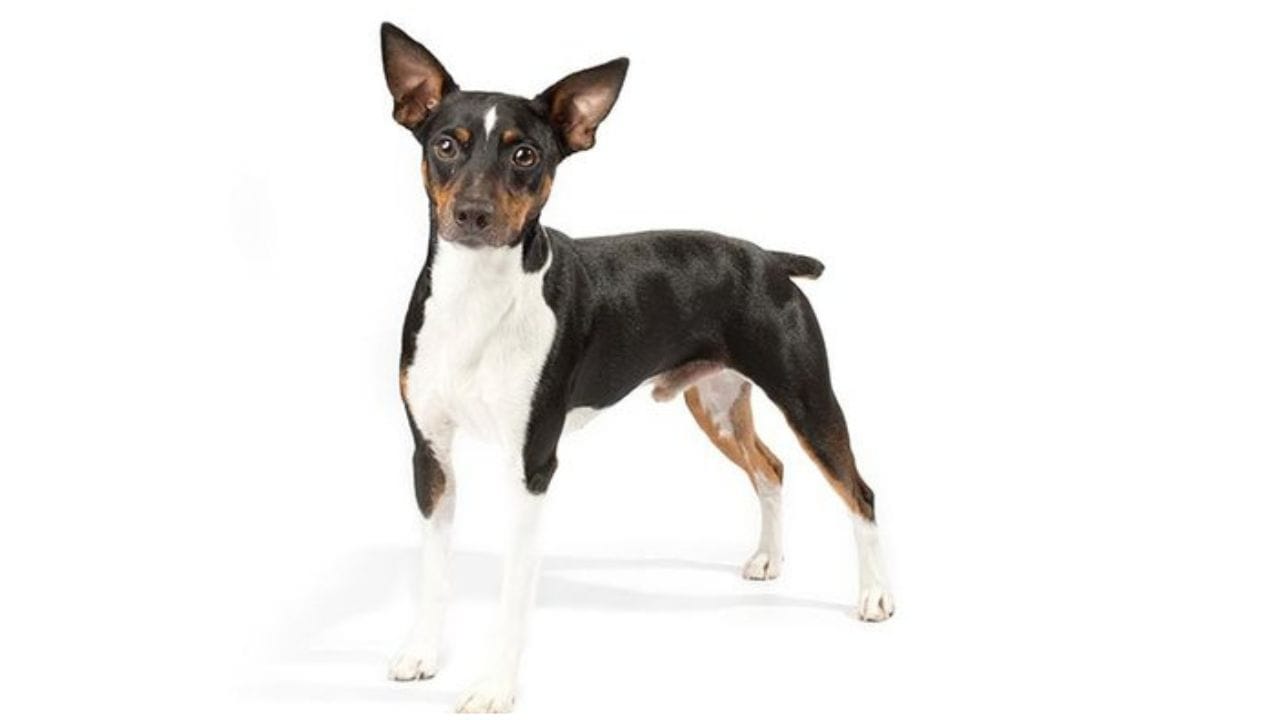Have you ever wondered if Rat Terriers are aggressive by nature? Well, you're not alone. Rat Terriers are known for their boundless energy and intelligence, making them beloved pets for many. But, are they aggressive? In this article, we will explore the temperament and aggression tendencies of Rat Terriers to help you understand their behavior better.

Rat Terriers are a small yet feisty breed that originates from the United States. They were initially bred for hunting small game, such as rats and squirrels. With their hunting background, some may assume that Rat Terriers are naturally aggressive. However, aggression in dogs is not solely determined by breed but is influenced by various factors including genetics, training, and socialization.
While individual temperament can vary, Rat Terriers are generally known to be friendly, alert, and loyal companions. With proper training and socialization from an early age, they can be well-behaved and adaptable to various environments. However, like any dog breed, there may be exceptions to this rule.
Join us as we delve into the nature of Rat Terriers and debunk the myths surrounding their aggression tendencies. Understanding this beloved breed better will help you provide the best care and training for your furry friend.
Understanding the Rat Terrier breed
Rat Terriers are a unique breed that combines the traits of small terriers and larger hunting dogs. They are agile, muscular, and possess a strong prey drive. Rat Terriers have a compact body, with a short coat that can come in a variety of colors and patterns. They usually weigh between 10 to 25 pounds and stand around 10 to 18 inches tall at the shoulder.
These dogs are highly intelligent and have a strong desire to please their owners. With their sharp senses and quick reflexes, they excel in various activities such as obedience, agility, and even therapy work. Rat Terriers thrive on mental and physical stimulation, and without adequate exercise, they may become bored and exhibit behavioral problems.
It is important to note that while Rat Terriers have a hunting background, it does not necessarily mean they are inherently aggressive. Like any breed, their behavior is shaped by a combination of genetic predisposition, training, and socialization. With the right approach, Rat Terriers can be loving and well-mannered companions.

Common misconceptions about Rat Terrier aggression
Unfortunately, Rat Terriers, like many other breeds, have been subject to misconceptions regarding their aggression. These misconceptions often stem from a lack of understanding about the breed's temperament and individual differences. Let's explore some of the common misconceptions about Rat Terrier aggression and debunk them:
- Rat Terriers are born aggressive: This is a prevalent misconception that assumes all Rat Terriers are naturally aggressive due to their hunting background. While they may have an instinctual prey drive, it does not automatically translate to aggression towards humans or other animals.
- Rat Terriers are dangerous with children: This misconception arises from the assumption that Rat Terriers are inherently aggressive towards children. However, with proper socialization and training, Rat Terriers can be gentle and patient with children, making them excellent family pets.
- Rat Terriers are always aggressive towards other dogs: While Rat Terriers may display some dog-to-dog aggression, this behavior can be managed through training and socialization. Not all Rat Terriers are aggressive towards other dogs, and with the right introductions and positive experiences, they can coexist peacefully with their canine counterparts.
Factors that may contribute to aggression in Rat Terriers
While aggression in Rat Terriers is not breed-specific, certain factors can contribute to aggressive behavior. It is essential to consider these factors when understanding and managing aggression in Rat Terriers:
- Genetics: Like any breed, Rat Terriers can inherit certain genetic predispositions that may make them more prone to aggression. Responsible breeders strive to produce well-tempered Rat Terriers by selectively breeding individuals with sound temperaments.
- Lack of socialization: Insufficient socialization during a Rat Terrier's critical developmental stage can lead to fear, anxiety, and aggression. Early and ongoing socialization is crucial to help them become confident and well-adjusted dogs.
- Poor training or inconsistent boundaries: Inconsistent or inadequate training methods can result in a lack of respect for boundaries and authority. Without clear guidance, Rat Terriers may exhibit aggressive behaviors as a result of confusion or frustration.
- Fear and anxiety: Rat Terriers can become aggressive when they feel threatened or fearful. Identifying and addressing the underlying causes of fear or anxiety is essential in managing their aggression.
- Medical conditions: Sometimes, underlying medical conditions or pain can cause a dog to display aggressive behavior. It is important to rule out any physical discomfort or health issues that may be contributing to aggression.
Understanding these factors can help identify potential triggers for aggression in Rat Terriers and allow for a targeted approach in managing and preventing aggressive behaviors.
Signs of aggression in Rat Terriers
Identifying the signs of aggression in Rat Terriers is crucial for early intervention and effective management. While each dog is unique, there are some common signs to watch out for:
- Growling or snarling: Rat Terriers may emit low growls or snarls when they feel threatened or uncomfortable. This is a clear warning sign that they are not comfortable with the current situation.
- Lunging or snapping: Aggressive Rat Terriers may exhibit sudden lunging or snapping behaviors towards people or animals. This can be a display of dominance or an attempt to protect themselves.
- Showing teeth or raised hackles: When Rat Terriers feel threatened, they may display their teeth or raise the hair on their back (hackles). This is a defensive posture intended to deter potential threats.
- Biting or nipping: In extreme cases, Rat Terriers may resort to biting or nipping as a form of aggression. This behavior should be taken seriously and addressed promptly to prevent any harm to humans or other animals.
It is important to note that these signs of aggression should not be misunderstood as a reflection of the breed as a whole. Proper training, socialization, and addressing any underlying issues can help mitigate aggressive behaviors in Rat Terriers.
Training techniques to manage and prevent aggression in Rat Terriers
Training plays a crucial role in managing and preventing aggression in Rat Terriers. Here are some effective techniques to consider:
- Positive reinforcement: Using positive reinforcement techniques, such as rewards and praise, can help reinforce desired behaviors and build a strong bond between you and your Rat Terrier. Rewarding calm and non-aggressive behavior will encourage your dog to repeat those actions.

- Consistent and clear commands: Providing consistent and clear commands will help your Rat Terrier understand what is expected of them. This clarity can reduce confusion and frustration, which can lead to aggression.
- Socialization: Exposing your Rat Terrier to a variety of people, animals, and environments from an early age is crucial for their social development. Gradually introducing them to new experiences and providing positive reinforcement can help prevent fear-based aggression.
- Desensitization and counter-conditioning: If your Rat Terrier displays aggression towards specific triggers or situations, desensitization and counter-conditioning techniques can be effective. Gradually exposing them to the trigger while providing positive experiences can help change their emotional response.
- Professional training assistance: In some cases, seeking the help of a professional dog trainer or behaviorist may be necessary. They can assess your Rat Terrier's specific needs and provide tailored training techniques to address their aggression.
Remember, consistency, patience, and positive reinforcement are key when training a Rat Terrier. Avoid harsh punishment or physical corrections, as these can escalate aggression and damage the trust between you and your dog.
Socializing Rat Terriers to reduce aggression
Socialization is an essential aspect of raising a well-rounded and non-aggressive Rat Terrier. Here are some tips for effective socialization:
- Start early: Begin socializing your Rat Terrier as soon as possible, ideally during their critical developmental stage, which is between 3 to 14 weeks of age. This is when they are most receptive to new experiences and less likely to develop fear or aggression.
- Expose them to various environments: Introduce your Rat Terrier to different environments, such as parks, streets, and pet-friendly establishments. This exposure will help them become comfortable and confident in various settings.
- Introduce them to different people and animals: Allow your Rat Terrier to interact with a wide range of people, including adults, children, and seniors. Similarly, provide controlled interactions with other dogs and animals to promote positive socialization.
- Positive experiences: Ensure that your Rat Terrier has positive experiences during socialization. Reward them with treats, praise, and play when they display calm and non-aggressive behavior.
- Monitor and manage interactions: Always supervise your Rat Terrier during socialization to ensure their safety and the safety of others. If necessary, use a leash or a muzzle to prevent any potential incidents.
By prioritizing socialization and exposing your Rat Terrier to a variety of positive experiences, you can help reduce the likelihood of aggression and promote their overall well-being.
Handling aggression in Rat Terriers: Dos and Don'ts
When dealing with aggression in Rat Terriers, it is important to approach the situation with care and consideration. Here are some dos and don'ts for handling aggression:
Dos:
- Stay calm and composed: Your Rat Terrier can pick up on your emotions, so it is important to remain calm and composed when addressing their aggression. Reacting with anger or fear can escalate the situation.
- Identify triggers: Determine the specific triggers that provoke aggression in your Rat Terrier. This could be certain people, animals, or situations. Understanding the triggers will help you develop a targeted approach to manage their aggression.
- Establish a consistent routine: Maintaining a consistent routine for your Rat Terrier can help reduce anxiety and prevent the development of aggression. Regular exercise, feeding times, and training sessions provide structure and stability in their lives.
- Remove the dog from triggering situations: If you anticipate a potentially triggering situation, remove your Rat Terrier from that environment to prevent any aggressive incidents. This could mean avoiding crowded places or limiting interactions with certain individuals or animals.
- Implement management techniques: Use management techniques, such as leashing your Rat Terrier in public or providing a safe space for them to retreat to when they feel overwhelmed. These techniques can help prevent situations where aggression may occur.
Don'ts:
- Punish or yell at your Rat Terrier: Punishing or yelling at your Rat Terrier when they display aggression can worsen their behavior and damage the trust between you. Instead, focus on positive reinforcement and redirection techniques.
- Force your Rat Terrier into uncomfortable situations: Forcing your Rat Terrier into uncomfortable or threatening situations can escalate their aggression and lead to further behavioral issues. Respect their boundaries and work on gradually desensitizing them.
- Neglect professional help: If your Rat Terrier's aggression persists despite your best efforts, seeking the assistance of a professional dog trainer or behaviorist is crucial. They can provide guidance and develop a tailored plan to address your dog's specific needs.
Remember, aggression in Rat Terriers can be managed and improved with the right approach, patience, and consistency. By focusing on positive reinforcement, socialization, and professional guidance when needed, you can help your Rat Terrier become a well-behaved and non-aggressive companion.

Seeking professional help for aggressive Rat Terriers
If your Rat Terrier displays severe or persistent aggression, seeking professional help is crucial. A professional dog trainer or behaviorist with experience in aggression management can assess your dog's specific needs and develop a tailored plan for improvement. They can provide guidance, teach you effective training techniques, and monitor progress to ensure the safety and well-being of both you and your Rat Terrier.
Remember, there is no shame in seeking assistance. Your commitment to your dog's well-being and the safety of those around you is paramount.
Tips for responsible ownership of Rat Terriers
Owning a Rat Terrier comes with great responsibility. Here are some tips to ensure you are a responsible owner:
- Provide proper exercise: Rat Terriers have high energy levels and require regular exercise to keep them mentally and physically stimulated. Aim for daily walks, play sessions, and interactive toys to prevent boredom and destructive behavior.
- Offer mental stimulation: Rat Terriers are intelligent dogs that thrive on mental challenges. Provide puzzle toys, obedience training, and interactive games to keep their minds engaged.
- Establish consistent rules and boundaries: Setting clear rules and boundaries from the beginning will help your Rat Terrier understand what is expected of them. Consistency is key in reinforcing these rules and preventing confusion or frustration.
- Maintain a healthy diet: Feed your Rat Terrier a balanced and nutritious diet that meets their specific needs. Consult with your veterinarian to determine the appropriate portion sizes and dietary requirements for your dog's age, size, and activity level.
- Regular veterinary care: Schedule regular check-ups with your veterinarian to ensure your Rat Terrier's overall health and well-being. Vaccinations, parasite prevention, and dental care are essential aspects of responsible ownership.
- Spay or neuter your Rat Terrier: Consider spaying or neutering your Rat Terrier to prevent unwanted pregnancies and reduce certain behavioral issues. Consult with your veterinarian to determine the ideal time for this procedure.
- Practice good hygiene: Regular grooming, including brushing, nail trimming, and ear cleaning, is necessary to keep your Rat Terrier healthy and comfortable. Additionally, maintain proper dental hygiene by brushing your dog's teeth regularly.
- Be a responsible advocate: Promote responsible ownership of Rat Terriers by setting a good example. Educate others about the breed's true temperament and help debunk misconceptions surrounding Rat Terrier aggression.
By following these tips, you can ensure that your Rat Terrier leads a happy, healthy, and well-adjusted life.




